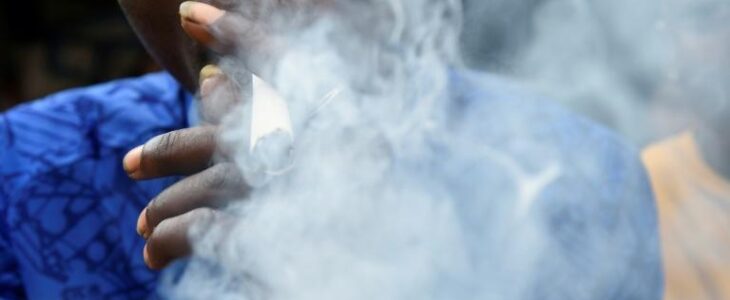
Authorities in north Nigeria have closed informal rehabilitation centres accused of abusing children, but youngsters struggling with addiction and psychological problems have been left with stark choices for help.
Informal Islamic religious schools called Palmaris schools are common in northern Nigeria — official estimates say more than nine million youngsters are enrolled there.

Many also operate as reform centres to help parents deal with youth drug use and other behavioural problems in the absence of support from the state.
But police raided dozens of centres run by Islamic seminaries last year where hundreds of youth were rescued from appalling conditions.

Emaciated students in shackles and bearing scars from beatings were found in the facilities which authorities denounced as ‘torture centres.’
With a lack of state help, parents say they are left few choices: Keep their children at home or send them back to institutions that are still operating.
Hadiza Musa has struggled to deal with her three sons who returned to drugs since they were rescued from one of the raided rehabilitation homes.
“I don’t mind the harsh treatment they were subjected to at the rehab centre which is less a problem than having them roaming the streets doing drugs,” said the 55-year old widow.
“I have no means of controlling them and that gives me sleepless nights and anxiety.”
Musa said she could not afford to take them to the two poorly-equipped state-run psychiatric hospitals in the city.
– Codeine and glue –
In conservative mostly Muslim northern Nigeria, drug use and other activities are frowned up in a region where Islamic sharia law is applied alongside the country’s federal laws.
In the absence of proper state services, drug addicts, those suffering from mental illness and youth delinquents often end up bundled into the same reform centres.
In northern Kano state authorities have set up an anti-narcotics task force to fight high rates of drug use among its youth who turn to marijuana, codeine and painkillers and glue sniffing.
Muhammad Adamu’s 18-year-old drug addict and mentally-ill son was sent home from the state-run psychiatric hospital because he could not continue with paying for his medication.
“The hospital sent him home, saying his stay at the hospital was of no use without medication, which I cannot afford,” Adamu said.
Last month, police in Kano raided one rehabilitation centre which had secretly reopened 10 months ago after being shut.
Police arrested two suspects for “running an illegal rehabilitation centre with chained and tortured inmates,” Abdullahi Haruna Kiyawa, Kano’s police spokesman said in a statement.
A total of 47 inmates were rescued from the facility.
– ‘Only options’ –
Nigeria has only 250 trained psychiatrists for its 200 million population, according to Association of Psychiatrists in Nigeria (APN).
Poorer Nigerians often resort to traditional and faith-based healers to deal with mental health issues.
For Yusuf Hassan, who runs a non-profit advocating reform of Almajiri schools, people would keep using informal rehab facilities as long as government doesn’t provide them with alternative care.
“No one who has access to conventional psychiatric care will take his child or relation to any of the unorthodox rehab centres the government has banned,” Hassan said.
In Nigeria many people associate mental illness with evil spirits leading to a stigma for families. Those who can’t afford traditional care, often detain the mental ill relatives at home, often in debasing conditions.
“People are left with only two options: take their mentally ill relations to undeground healing centres or chain them at home,” said Hassan.
Since last year authorities have rescued several people with mental illness from solitary confinement in homes where they were found in chains and under unsanitary conditions.
In August last year police in Kano rescued a mentally-ill 55-year-old man chained and confined in a room for 30 years by his relations.
A week later, another mentally-ill man was freed from 15-year solitary confinement by his father.
“If I could, I would not hesitate to chain my three sons at home if that will keep them off drugs,” widow Musa said.
Credit: Yahoo News
